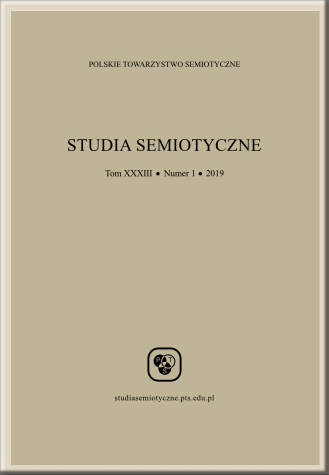Abstrakt
DOI: http://doi.org/10.26333/sts.xxxiii1.04
My aim in this paper is to amend the Stalnakerian view of context in such a way that it can allow for an adequate treatment of a contextualist position regarding the Liar Paradox. I discuss Glanzberg’s contextualism and the reason why his position cannot be encompassed by the Stalnakerian view, as it is normally construed. Finally, I introduce the phenomenon I call “semantic dissonance”, followed by a mechanism accommodating the Stalnakerian view to the demands of Glanzberg’s contextualism.
Bibliografia
Gauker, Ch. (2006). Against Stepping Back: A Critique of Contextualist Approaches to the Semantic Paradoxes. Journal of Philosophical Logic, 35(4), 393–422.
Glanzberg, M. (2001). The Liar in Context. Philosophical Studies, 103(3), 217–251.
Gupta, A. (2001). Truth. In: L. Goble (Ed.), The Blackwell Guide to Philosophical Logic (pp. 90–114). Oxford: Blackwell Publishers.
Newhard, J. (2009). The Chrysippus Intuition and Contextual Theories of Truth. Philosophical Studies, 142(3), 345–352.
Parsons, Ch. (1974). The Liar Paradox. Journal of Philosophical Logic, 3(4), 381–412.
Sagi, G. (2016). Contextualism, Relativism and the Liar. Erkenntnis, 82(4), 913–928.
Simmons, K. (1993). Universality and the Liar: An Essay on Truth and the Diagonal Argument. Cambridge University Press.
Simmons, K. (2018). Contextual Theories of Truth and Paradox. In: M. Glanzberg (Ed.), The Oxford Handbook of Truth (pp. 755–786). Oxford: Oxford University Press.
Stalnaker, R. (1999). Context and Content: Essays on Intentionality in Speech and Thought. Oxford: Oxford University Press.
Stalnaker, R. (1978). Assertion. In: R. Stalnaker (Ed.), Context and Content (pp. 78–95). Oxford: Oxford University Press.
Stalnaker, R. (1998). On the Representation of Context. In: R. Stalnaker (Ed.), Context and Content (pp. 96–114). Oxford: Oxford University Press.


